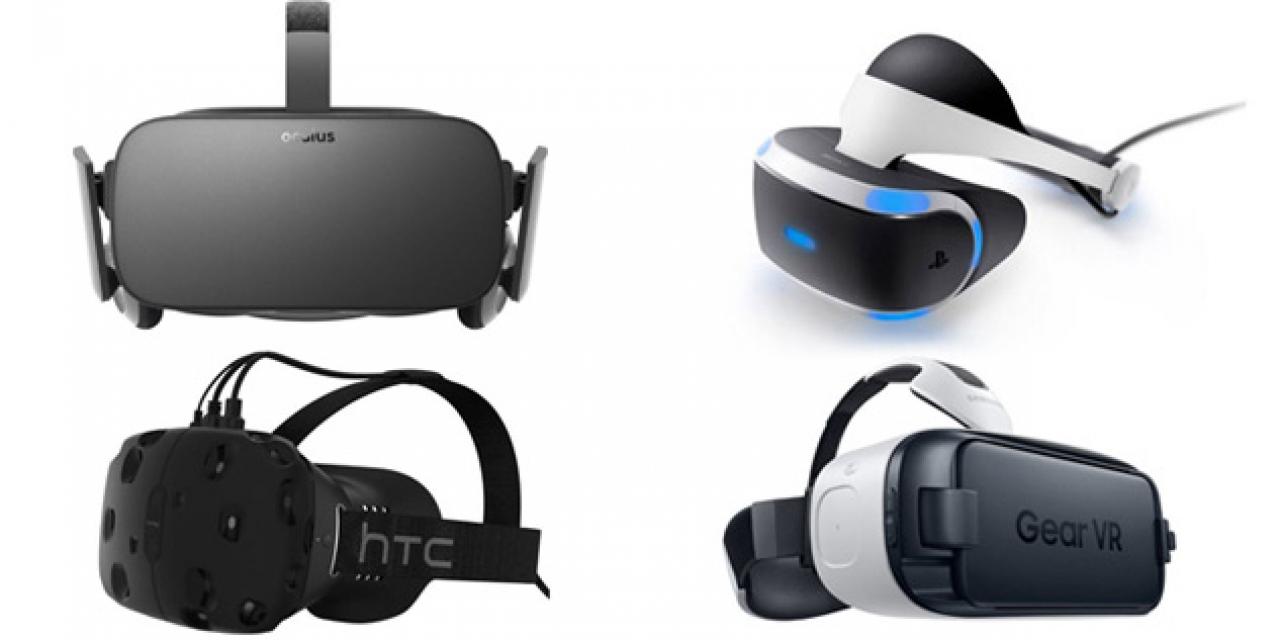
It seemed like six months ago, when the Oculus Rift and HTC Vive first debuted, that the virtual reality marketplace had reached a fever pitch of hype, excitement, speculation and anticipation, so now, nearing the end of 2016, you would think it would have started to die down. We've had the headsets for a while now, so surely the hype will have lessened?
It turns out that this hype train is just getting started, as even with real world impressions there are still many questions to be asked and answered. We have new hardware showing up in the near future, the console virtual reality marketplace starting to blossom and a number of new potential manufacturers joining the scene, all hoping to get a piece of the VR pie.
But let's look at the established hardware first. How have the Oculus Rift and HTC Vive done over the past few months?
Content wise they have far more to offer than they did during launch. Between them there are hundreds upon hundreds of games and experiences and while we may still be lacking a number of "must-have" purchases and AAA content, it's all starting to come together.
On the HTC Vive there are a lot of wave shooters available now, some with recognisable IPs like Serious Sam VR. It also has some excellent puzzlers and a few unique comedic experiences like the first, free release from Rick and Morty creator Justin Roiland: Accounting. It sees you navigate a number of bizarre virtual environments, all the while accompanied by humorous dialogue and voice overs.
Oculus has had less of a significant roll out of content over the past few months, but has released a number of unique experiences like ADR1FT, Eagle Flight, Dead and Buried and Superhot, as well as entertainment experiences like Butts and Through the Ages. But it's in a few weeks' time, when the Touch controllers are released that things will really star to heat up.
Before we 'touch' on the hardware itself, content wise that debut will see experiences like Epic Game's free tech demo for the Unreal Engine in VR: Robo Recall. The game sees players shooting, throwing and punching robots to death in comedic and explosive ways. It looks like a lot of fun, but it's just one of 30 experiences that will launch with the Touch controllers. Games like VR Sports Challenge, Rock Band VR, Giant Cop and Fantastic Contraption will all show up with Touch support from the get go.
The Touch controllers themselves are rather exciting and show a more minimalist approach to VR motion controls than HTC's Vive wands. They have gesture support and are very lightweight and easy to put down. It's an interesting design and we're pumped to try them out, though they'll have to really impress to make us put down our Vive any time soon.
Elsewhere in the VR field, PlayStationVR is now available and it's arguably comparable to the two alternatives in terms of visual quality – definitely as good as the Rift. It has somewhat wonky motion control support through the Move Motion controllers and its tracking area is a bit restricted, but it's also only $400.
As a comparable, yet much more affordable VR option for people, it serves as a great middle ground between the higher-end PC alternatives and the mobile solutions. With a big install base of PS4 consoles around the world, expect the PSVR to be the most popular virtual reality headset system before long.
Microsoft's end of things is pretty light right now. It's likely to try and integrate the Rift – or future versions – with the Xbox One Scorpio, but that's not set to arrive until early 2017, so we'll have to wait and see on that one.
Elsewhere in the PC space, modular headset alternatives like the OSVR offer much more affordable entries into virtual reality. They aren't as capable, but are much more versatile and could potentially offer hardware hackers the chance to try out lots of different types of VR controllers. While there isn't much to play with right now, you know a lot of third party companies will want to make their own controllers and if Oculus and HTC/Valve keep their systems locked down, the OSVR is where you'll get to try them.
If you want something more high end, we have the likes of StarVR now shipping out to IMAX cinemas, with the plan to develop new movie watching experiences with the ultra-HD displays. There's no motion controllers there, and no sign of PCs being able to power them without thousands of dollars of investment, but it's an exciting idea of where VR could go in the future.
For now though, we'd still recommend the Vive. Until the Rift has proved it can improve its tracking with multiple cameras, we'll stick with the tried and tested roomscale solution, but there's certainly a lot of great alternatives.
What in VR has you guys most excited as we close out 2016?
